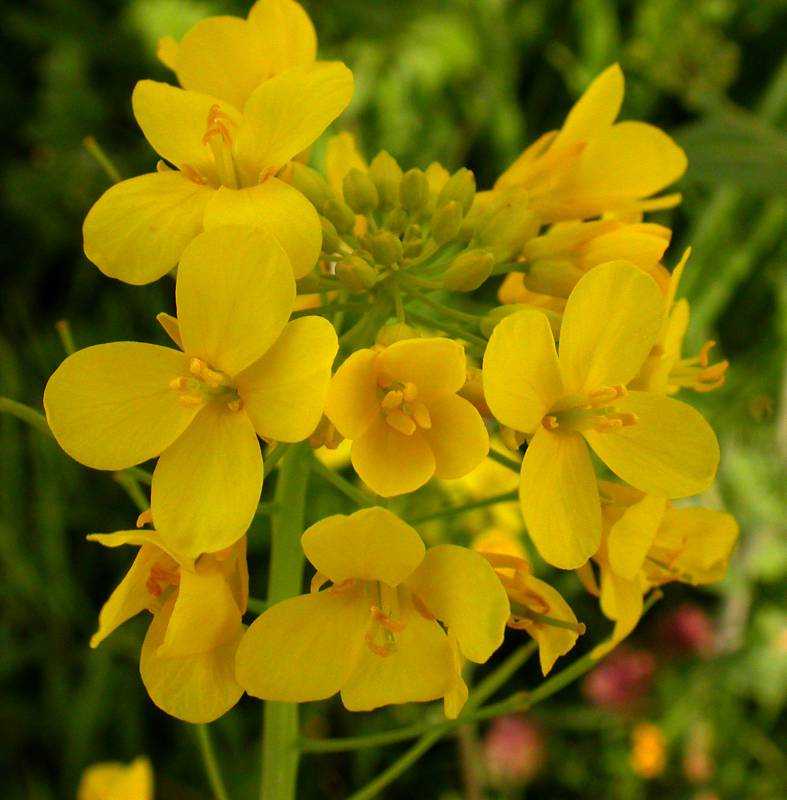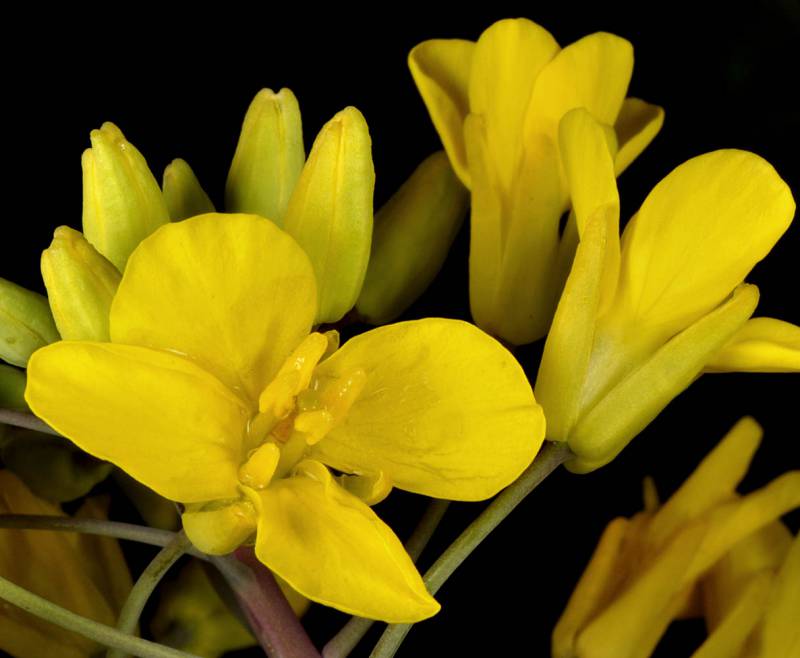Brassica rapa
Brassica napus
common mustard, field mustard, wild turnip
rape, winter rape, rapeseed
Flowers in small racemes terminally from leaf axils, with fruiting pedicels ascending to spreading, 10-25 mm. Sepals 4, green to yellow;
petals 4, pale to deep yellow, 1 cm long; 6 stamens, 2 shorter than the others; superior ovary with one 2-carpellate pistil.
Siliques up to 7cm long with s slender beaked tip.
Black, brown or reddish in color, 1-2 mm in diameter. Seed coat is very finely reticulate to lightly alveolate.
Brassica rapa
Brassica napus
Occurring chiefly west of the Cascades crest in Washington; Alaska to California, east to the Atlantic Coast.
Occurring on both sides of the Cascades crest in Washington; widely distributed throughout much of North America.
- Local floras:
BC,
CA,
OR,
WA
- Local Web sites:
CalFlora,
CalPhotos,
Flora NW,
PNW Herbaria,
Turner Photog.
WildflowerSearch
iNaturalist (observations)
USDA Plants Database
- LBJ Wildflower Center
- SEINet
- Plants of the World Online
- Encyclopedia of Life
- Wikipedia
- Google Image Search
- Local floras:
BC,
CA,
OR,
WA
- Local Web sites:
CalFlora,
CalPhotos,
Flora NW,
PNW Herbaria
WildflowerSearch
iNaturalist (observations)
USDA Plants Database
- LBJ Wildflower Center
- SEINet
- Plants of the World Online
- Encyclopedia of Life
- Wikipedia
- Google Image Search



